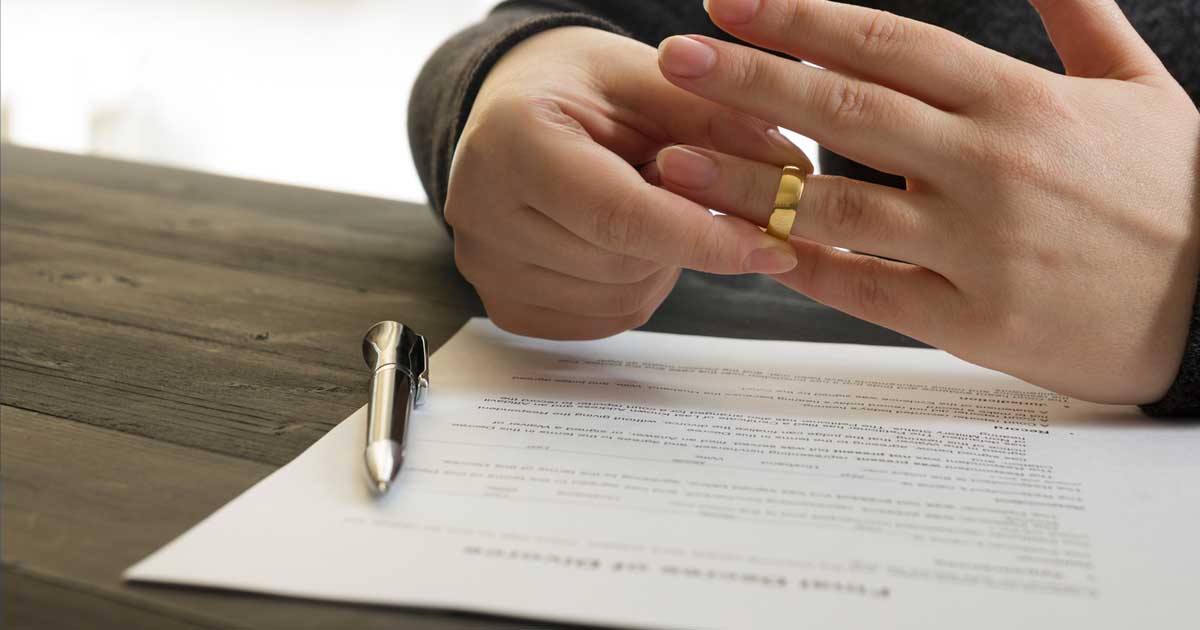Dealing with Divorce is never easy whether you have taken the decision or your spouse has initiated it. Divorce laws are laid out in the Women’s Charter, and Section 94 of the Charter.
You need to be married for a minimum of three years to apply for Divorce in Singapore.
“The only ground for divorce is when the marriage has irretrievably broken down.”
The one who initiates the divorce is the plaintiff, while the other spouse is the defendant.
Whether you are the defendant or the plaintiff, knowing what happens during the divorce process is the key to being prepared and make the process as hassle-free as possible.
Contested and Uncontested Divorce
An uncontested divorce is one in which both parties have agreed on the grounds for divorce and the ancillary matters such as property division and child custody.
In an uncontested divorce, the interim judgment is given after four weeks, while the final judgment is issued after three months from the interim judgment.
A contested divorce is where one of the parties does not agree to the terms of the divorce. The time frame for a contested divorce can be between 6 to 18 months.
Read more: Contested vs Uncontested Divorce in Singapore
The two stages of the Singapore divorce process
If you have underage children, the parties will have to attend the Mandatory Parenting Program (MPP) even before filing for divorce.
The first stage of divorce proceedings
The first step in a contested divorce proceeding is preparing and filing various court documents such as:
- Writ for Divorce – to formally commence the proceedings
- Statement of Claim that contains details of facts related to the breakdown of your marriage, as well as the relief, claimed
- Statement of Particulars that provide an in-depth explanation as to why the marriage has irretrievably broken down
- Proposed Parenting Plan when the parties have underage children.
- Matrimonial Property Plan in case of an HDB flat
- Memorandum of Appearance – the defendant ( your spouse) files the memorandum of appearance within eight days of receiving the writ for divorce.
While you can prepare these documents, consulting an experienced divorce lawyer is the best way to ensure all your papers are in order. Pending your approval, these documents will then be served to the defendant.
If the defendant does not contest the divorce, the court gives a hearing date. Parties are typically not required to attend the hearing.
In a contested divorce, the court conducts a pre-trial conference or PTC to see if the parties can agree on certain aspects of the divorce.
At this point, the court directs parties to attend mediation with their lawyers.
If mediation fails, the court will direct parties to file their affidavits and witnesses for the contested divorce and set a hearing date for the parties to testify in court.
At the contested divorce hearing date, the judge will either grant an Interim Judgment or dismiss the Writ for Divorce.
The second stage: Ancillary matters
In the second stage of divorce hearings, aspects related to matrimonial assets division, child maintenance, custody of children and spousal maintenance are heard by the court.
The parties have to file an Affidavit of Assets and Means to honestly disclose their financial status, income sources, liabilities, assets, and expenses.
Suppose anyone party suspects the other is hiding or falsifying facts. In that case, they can file for Discovery or Interrogatories to get relevant details.
“If individuals’ net worth is above $5 million, the case is transferred to the High Court.”
If both parties agree on all ancillary matters, a consent Ancillary hearing date will be fixed.
Parties will have to prepare and sign the Draft Consent Order. In case the parties fail to reach an agreement, the court sets a contested Ancillary matters hearing date.
Read more: Existing Litigation vs Ancillary Matters
Once the orders are passed on ancillary matters, our divorce lawyers at GJC law can apply for the final divorce certificate that confirms your divorce.












